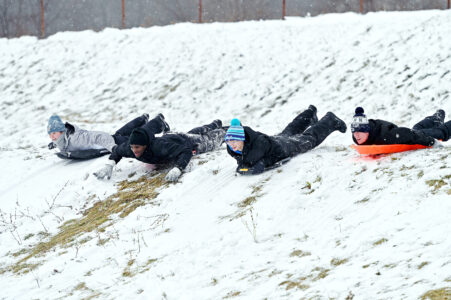Pennsylvania Superior Court upholds prison sentence in Altoona bar brawl
Learn received 22 to 44 months for assault
A prison sentence imposed on an Altoona man who engaged in a bar fight more than three years ago has been upheld in a recent decision issued by the Pennsylvania Superior Court.
Hunter John Learn, 22, was arrested along with two other men following a brawl that was described by a bouncer from the Black and Gold Bar Tavern on Sixth Avenue as the worst he had seen during his more than four years on the job.
He described it as a “stomping” that occurred in the parking lot of the bar following the close of business on June 4, 2022.
According to the Superior Court decision, a couple who had been in the bar that night were attacked by three men, including Learn, who was 20 at the time, Jeremy Fornbacher, 30, and Brandon Smida, 22.
The bouncer witnessed the attack on the male victim, who was knocked to the ground and was repeatedly kicked and punched by all three men.
The female who accompanied the male victim was also attacked.
Both victims were taken to the hospital following the fray. Each suffered a broken nose, among other injuries.
The charges against the three men were tried in November 2023 and Blair County Judge Jackie Bernard sentenced Smida to one year’s probation for disorderly conduct.
Fornbacher received a sentence of six to 23 months in the Blair County Prison on two counts of simple assault and disorderly conduct.
He was to serve a probationary sentence of three years upon his release.
Learn was convicted of aggravated assault, as well as simple assault and disorderly conduct. He received a state sentence of 22 to 44 months, followed by three years’ probation.
He presently is incarcerated in the State Correctional Institution in Frackville.
Learn, through Blair County attorney Terry W. Despoy, appealed his conviction on the charge of aggravated assault.
The defense argued that the prosecution failed to prove that Learn caused serious bodily injury to the male victim or that his actions manifested extreme indifference to the value of human life, noting the victim suffered only a broken nose.
Learn, who took the witness stand in his own defense, characterized his part in the assault as a “brief physical altercation” in which he used only his hands and feet — not a weapon or implement — and that he quickly disengaged from further attacks on the victim.
The defense argument before a three-judge panel of the appeals court focused on prosecution’s evidence, contending it was insufficient to prove aggravated assault.
The prosecution failed to show Learn had caused serious bodily injury intentionally, knowingly or recklessly under circumstances manifesting extreme indifference to human life, according to the defense.
“We disagree,” the panel, in its lengthy opinion, concluded.
Judges Mary P. Murray, Megan King and Kate Ford Elliott stated Learn was identified by “numerous witnesses” as one of the participants, noting the trio “repeatedly hit, kicked and stomped on the victim’s head.”
The panel concluded that it was reasonable to conclude the beating “created a substantial risk of death or serious, permanent disfigurement.”
The evidence was sufficient to sustain the aggravated assault conviction, the opinion stated.
A second issue arose during the trial when Learn testified that the victim initiated contact between the two by placing him in a chokehold for 10 to 15 seconds during the melee.
He said the incident frightened him and that he had to catch his breath after he was released.
Upon hearing this, the prosecution wanted to know if this was the first time Learn had mentioned the chokehold by the victim and if he had ever reported it to police.
That brought a request for a mistrial from Learn’s trial counsel, pointing out that a suspect is not required to report anything to police (he has a right to remain silent).
Bernard denied the mistrial and gave curative instructions to the jury, noting that jurors “can never draw an adverse inference from someone who chooses to exercise that right to remain silent that we all enjoy as American citizens.”
She concluded the question by the prosecution inferring the defendant should have reported the alleged chokehold incident to police was “harmless error.”
“The record supports the trial court’s conclusions,” the Superior Court opinion stated.


